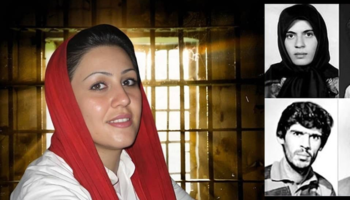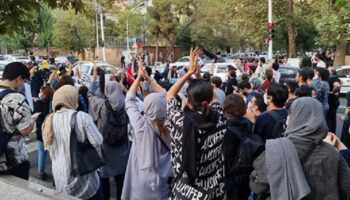Zak the Baker, famous for his Wynwood bakery cafe, shook things up a bit by replacing the bakery cafe with a kosher deli and opening a separate bakery, also kosher, one block away. Emily Michot emichot@miamiherald.com
BY CARLOS FRÍAS
cfrias@miamiherald.com
Zak Stern had posed for three pictures before he took his first sip of lunchtime Darjeeling tea.
He stares down into his glass of steaming amber tea, blushing through his long, curly beard as he sits at the counter of his new, larger kosher bakery less than a block from the original Zak the Baker, which, very quietly, he turned into a stricter glatt-certified kosher deli late last month.
“I like to be understated, subtle,” he said, wearing simple work boots with his jeans, flour-dusted apron and khaki cap like the ones local Jews wear on the northern Israeli farms where he worked while learning to make his beloved artisanal bread. “But I guess I don’t mind people celebrating artisans — especially in Miami, where people celebrate Ferraris and sex and money.”
Just then, a middle-aged blond woman interrupts him to tell him she just sent a cellphone picture of his kugel in the display to her family because it looks just like her grandmother’s. She asks him for another picture. She stands next to him with her arm extended for a selfie and he blushes a deeper red.
His Wynwood bakery is abuzz this Friday, the counter filling with everyone from hipsters to Hasidic Jews lining up for his weekly noon release of 200 challah loaves for Shabbat dinners. Stern closes Zak the Baker on Saturdays in keeping with kosher requirements.
At 11:57 a.m., when Stern and two of his employees wheel out two carts of beautifully braided bread that has taken more than 50 hours to make, there is whooping and applause. He doesn’t set a limit on the number anyone can buy, but asks the shoulder-to-shoulder crowd to please limit themselves so everyone can take home at least two to get them through the day of rest.
“Thank you for doing this, Zak! For keeping the tradition alive. We need more of this,” says Edwin Zaghi of San Francisco, in town for the Miami Marathon, as he reaches over a crush of customers to take his bag of challahs and shake Stern’s hand.
Outside, the scent of toasted grains gives way to an aroma of savory spices as Stern walks the half-block west to his new deli as drivers honk and give him a thumbs-up. A pair of Orthodox Jews in black, flat-brimmed hats pass a model on the way to a shoot.
Stern opens the door to the deli, where chef Melissa Sosa keeps the kitchen moving as a line of diners backs up to the door. A man Stern has never met stops him in the doorway and tells him his corned beef sandwich is better than anything he’s had back in New York City.
“Have a good Shabbat,” he tells Stern.
“And to you, as well,” he says.
This is how Stern, 31, honors his Jewish culture.
Zak Stern keeps a kosher home, a kosher bakery and an ultra-kosher deli. He has been married for more than three years to an Orthodox Jewish Israeli with whom he has two daughters being raised in the faith. But it’s on the plate, not in a synagogue, where Stern keeps his Jewish traditions alive.
“I’m not religious. My life is religious,” Stern said.
Stern draws a distinction between the Jewish faith and its culture. He wants to honor his Ashkenazi Eastern European roots by preserving his ancestors’ cuisine. He finds his history in the thick-cut, fall-apart corned beef Sosa prepares on his kosher corn rye bread. In the pickled cabbage and cucumbers. In everything from his bakery’s bialy to the bread that can now be found at 13 Whole Foods Markets from Miami-Dade to Palm Beach counties.
“The nonreligious tend to communicate more through their food than through religious service,” he said. “I wanted to find a connection to the culture I was raised in.”
Stern was raised in a culturally Jewish household near The Falls, reluctantly going to temple about three times year. He was 15 when he got kicked out of Hebrew confirmation for using the school-wide intercom in the principal’s office and pretending to be the voice of God.
“It was a mission just to get him through his bar mitzvah,” his mother, Leslie Stern, remembers.
Her son was bored in gifted classes at Killian and Palmetto high schools, wore spiked hair, mismatched shoes, shirts turned backward or inside out, always the rebel. It was a minor shock when he graduated Florida State pre-med on the dean’s list and started pharmacy school at Atlanta’s Mercer University.
But halfway through his first semester, he called his parents to tell them he intended to withdraw. He was 22, at a school that would cost $35,000 a year and studying esoteric subjects like organic chemistry and immunology.
“This is not the life I imagined for myself,” he recalled. “I didn’t know anything. I didn’t know how to do anything. I felt disconnected from the fundamentals in life. I wanted some of that country wisdom, which I never got in the suburbs.”
Stern came back to South Florida and started working at Bee Heaven Farm in Homestead while living on the property in a teepee. He got up at 4 a.m. to help work the land and care for the animals. He went from an academic life to a physical one. His parents were understanding. After all, his mother’s sister has lived in an ashram in India for the last 30 years.
“I’m a Miami boy from la sawesera,” he laughs. “I had a comfortable life, and I needed some reality.”
He began an itinerant five years, what he calls his extreme “hippie phase,” traveling through Eastern Europe through a program called Worldwide Opportunities on Organic Farms, apprenticing and farming in exchange for room and board. He hitchhiked through Sweden, where he learned to make cheese, and Israel, where he farmed, raised goats and learned the culture that would shape Zak the Baker.
In the summers, he returned to teach children how to grow their own food at a summer camp in the north Georgia mountains, making about $3,500 to finance his trips.
“For me, finding connections is how I derive meaning out of life,” he said.
He spent his most formative time, nearly two years, learning to bake bread in Italy — where he also got his heart broken, eventually leading him back to South Florida.
Back at the deli, he sits down at an empty chair among diners, doing more listening than talking. He looks around the room, where on this Friday afternoon cultures and religions mix over corned beef sandwiches on rye.
None of this would have happened if he hadn’t met that Jewish Israeli girl in a cafe.
Just as he had apprenticed in Israel, a woman he met there asked if she and her younger sister, Batsheva, could apprentice with him in Miami. Stern had moved beyond baking bread eight loaves at a time for farmers’ markets in the converted two-car garage of his friend’s South Miami home and had grown to a commissary bakery in Hialeah.
They shared his house in Little Haiti, which Batsheva and her sister made kosher, from blow-torching the ovens to sterilize them, eliminating all traces of dairy and impurities, to dunking everything from plates to cutlery in the ocean (any natural body of water will do) and saying a prayer over them.
“I wanted Batsheva to be able to eat my food,” Stern said.
Stern felt an instant connection with Batsheva that remained unspoken (though not without some “heavy flirting”) until the two kissed. They got engaged the next day, and that weekend, he celebrated his first-ever Shabbat meal. After a six month engagement, they married in Israel.
“This is why we’re kosher — because I married my religious wife,” said Stern, who has two daughters now, ages 2 and 3 months.
The bakery, and then the deli, became an extension of their home, where Zak bakes the challah and prepares the Friday night Shabbat meal for his family.
“Our differences have taught us to be tolerant and respectful of each other,” Batsheva Stern wrote in an email while visiting her family in Israel. “Thank God, at ZTB we have had the privilege of seeing the magic of tradition and ritual under one roof.”
But it’s in the secular where Stern finds the spiritual. He differentiates between the Jewish faith and its culture. So much of how people identify with being Jewish is the food, he said.
“Miami could use a bit more soul, and this is my people’s soul food,” he said. “To carry on that history to me is very special. It’s fun to make the food my ancestors were making and bringing it into the present.”
He loves that his deli is a meeting place for different races and religions, down to the chef, a young Cuban-American woman raised in Key West who is recreating the Eastern European food of Stern’s ancestors. Sosa, a veteran of the Pubbelly and Sugarcane kitchens, spent the past two years studying beef curing and fermentation at New York delis.
“Even if it’s not my own history, we’re doing it as close to history as possible,” Sosa said.
“How great is that?” Stern adds. “We so rarely allow ourselves to cross our tribal barriers.”
He honors his Jewish traditions in how he treats those who come to his establishments — including his staff.
At the new deli he has yet to name (“Let the community decide what it should be called. I know it’s a little romantic, but I’m romantic,” he said), his 25 employees make a minimum of $15 an hour. He also charges a flat 15 percent service fee in lieu of tips. He wants to make the numbers work and apply the system to his 40 or so other employees at the bakery.
“I’m just not waiting around for politicians to do the things I want to see,” he said. “We have an opportunity to make a difference in our own little world.”
He keeps in mind his middle-class parents, a father who sold women’s shoes at Saks and mother who was a lifelong office administrator and now runs the deli.
“You know the word chutzpah? He had such chutzpah, like nobody you’ve ever met,” Leslie Stern said. “He just had to find his way.”
Stern is using the traditions of religion’s good works to unite, even when he playfully built a santeria altar outside his bakery during the Zika epidemic last summer. (“I think it worked,” he said.)
http://www.miamiherald.com/entertainment/restaurants/article130089114.html





